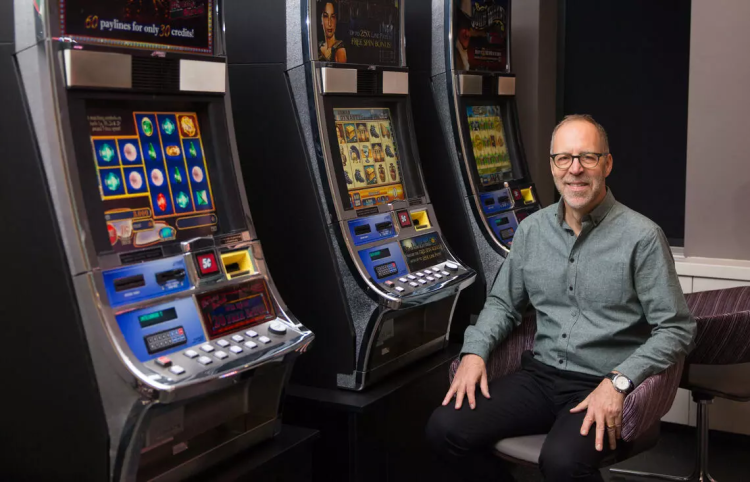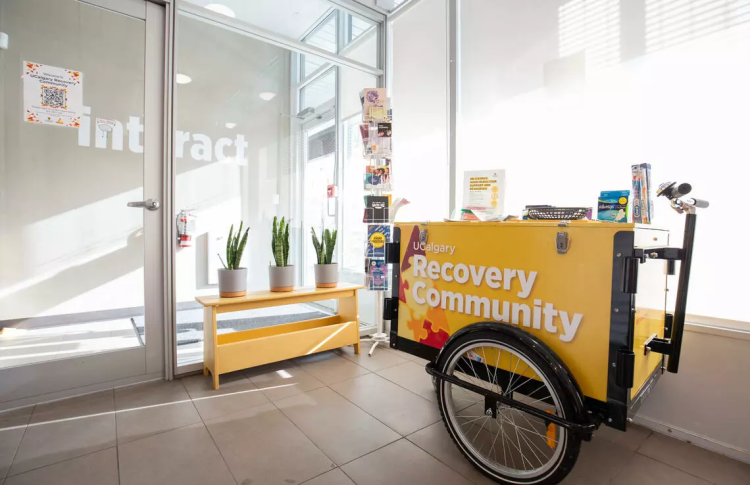The movement encourages questioning traditional drinking culture in favor of health and wellness. Non-alcoholic beverages, sober-friendly events and online communities have made sobriety more accessible, appealing not just to those seeking sobriety but also to individuals focused on health or personal growth. Social media plays a dual role, sometimes triggering temptation but also often providing a space for connection and support, helping people extend sober curiosity beyond alcohol to other substances and habits.
This movement is just one example of a broader transformation in how society approaches addiction and recovery.
Traditionally, addiction treatment focused on abstinence, with 12-Step Programs like Alcoholics and Narcotics Anonymous as the most well-known models. However, newer approaches like harm reduction emphasize reducing the health, social and legal risks associated with substance use.
Methods of harm reduction can range from providing safe consumption spaces and needle exchange programs to offering education on safer substance use, such as avoiding mixing substances or understanding potency levels. These strategies can also include moderation techniques, helping individuals reduce their intake rather than requiring complete abstinence.
"The more that addiction treatment has moved into the mainstream, we've kind of realized that there are different strokes for different folks," says Dr. David Hodgins, PhD.

David Hodgins heads the Addictive Behaviours Lab, focused on understanding recovery for gambling addiction and substance abuse. Photo Credit: University of Calgary
Hodgins is the lead investigator within the Addictive Behaviours Lab (ABL) and a professor in the Faculty of Arts at the University of Calgary. He notes that the idea of a more flexible, self-directed approach to recovery is "a concept that captures something that's always been true."
"If you think about something like smoking-cessation, most people do quit on their own without pharmacological or treatment support. It's true for all types of addictions; the majority of people recover without any help," says Hodgins.
Professional help and intervention remain necessary to many, but this shift toward personal agency allows people to address their habits earlier, which is crucial.
"They don't have to worry about whether or not they have this severe problem, because that's not what it's about. It's about, Can I live a better life?'" says Hodgins.
Ashley Ethier, BA'16, a doctoral student in clinical psychology at UCalgary, adds that, with this shift, people do not necessarily have to label themselves as "sober" or "in recovery," alleviating the burden of disclosure that some individuals face.
"This makes it more normalized to ask yourself why you're drinking and whether you want to be drinking, rather than others asking, 'Why aren't you drinking?'" says Ethier.
This evolving culture can significantly influence various dimensions of an individual's life, helping individuals sustain recovery and make lasting changes.

The UCalgary Recovery Community coffee carts in the on-campus location in the Yamnuska Hall student housing building. Photo Credit: University of Calgary
The need for lasting change is especially crucial given the widespread impact of addiction, which is evident even within the UCalgary community. Cole Tosczak, BA'24, outreach co-ordinator for the UCalgary Recovery Community (UCRC), points out that nearly 7,000 students meet the criteria for a substance-use disorder, stressing that addiction isn't an issue affecting only a select few, but one that many silently struggle with.
"The strange thing about addiction is it's the only illness that you're stigmatized after you seek help," says Tosczak.
The stigma surrounding addiction often prevents individuals from seeking support, as they may feel ashamed or unsure about labeling their behavior. Supportive spaces, highlights Tosczak, allow people to explore their habits and recovery options, regardless of the factors motivating their exploration.
While the UCRC is a substance-free space, it welcomes people on any recovery journey, from abstinence to harm reduction, to those just beginning to get curious about their use behaviours. The center hosts seven peer support meetings, offering options that range from abstinence-based 12-Step programs to SMART Recovery, as well as Donuts and Discussion, appealing to those who might find themselves sober curious'.
"We want to create open doors on the campus and keep the door as wide open as possible. Now that you're on this journey, how can we support you?" says Tosczak.
The UCRC supports multiple pathways of addiction with a diverse range of programming, including 12-Step inspired peer support, as well as events that open conversations and peer support around all types of substance use behaviours.
Resources and movements help create a space where people can explore sobriety or healthier habits in a way that feels right for them. And there's more to look out for; whether it's safer drinking guidelines, outside supports or even the latest social media trends, every step forward counts.
The UCalgary Recovery Community (UCRC) is an inclusive, peer-driven group that supports all pathways to recovery, building community and reducing addiction stigma on campus.
In addition to the UCRC and its individual support, research initiatives like the Hotchkiss Brain Institute's Integrated Pathway from Addiction to Health (iPATH) lead research on addiction causes and treatments. Dr. David Hodgins contributes to iPath's work as one of the leads for a core objective, using digital technologies to improve recovery outcomes.
Questioning your relationship with substances and/or other behaviours, in recovery or seeking recovery from addiction? Learn more about their programs and initiatives here.
The Community Mental Health and Well-Being Strategy (CMHWS), formerly the Campus Mental Health Strategy and recently renewed, is a foundational commitment made by UCalgary to the mental health and well-being of the campus community. Its vision is to create a community where individuals can achieve well-being, thrive, excel and feel a sense of belonging.













